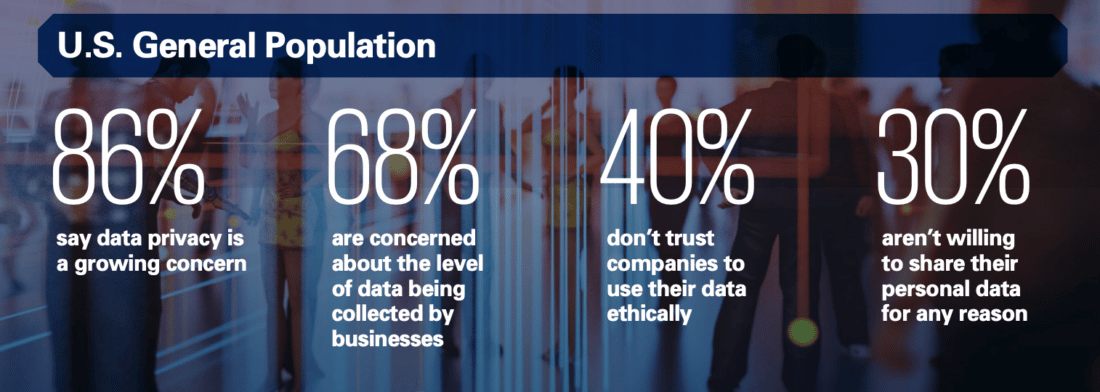This article was originally published in June 2021 and has been updated accordingly.
Imagine a world without third-party cookies. A world that gathers only enough data needed to create personalized experiences for those who want them. A world in which your information isn’t bought and sold. Looks like we’re going to have to wait a little (or a lot) longer.
Welcome to the Cookiepocalypse
In 2021, Google announced that it would delay its plan to block third-party cookies until 2023. Now they’ve decided to delay once again until the second half of 2024. In its decision, Google’s Chrome browser, which boasts a 65% global share of the search market, has negatively impacted every other competitor, from Safari to Internet Explorer to Firefox. These other browsers, meanwhile, have already dutifully blocked third-party cookies.
Cookies track a person’s internet activity and create a unique user profile, enabling über-targeted advertising. First-party data, on the other hand, is created and stored only by the website you are visiting directly. This information helps businesses capture customer analytics without sharing it with any third party.
In the past, Google has said that it will replace existing third-party data (the data purchased from outside sources) with its updated Privacy Sandbox initiative, or “protected environment,” to implement tighter privacy practices. These practices would include restricting tracking/fingerprinting and displaying only relevant content and ads. One of the reasons given for this latest delay is to gain additional time to evaluate and test Sandbox technologies.
Saving Private Data

The repeated postponement of a cookieless internet carries a sizable price tag to users: privacy and access to their personal information. According to an extensive study on privacy concerns from the Pew Research Center, a vast majority of Americans believe their online and offline activities are tracked and monitored by businesses and the government.
In 2022 Congress has inched even closer to passing the bipartisan American Data Privacy and Protection Act, which would become the national standard. The law would regulate what personal data companies can collect from individuals and how they’re allowed to use that data.
Despite conventional wisdom, there is a case for collecting less data on your customers. For one, you’re probably collecting way more data than you need (55% is likely “dark data”). Second, the more data you collect and store, the higher the risk. Third, your audience is looking for enhanced data transparency. And finally, collecting less data helps differentiate your brand from your competitors, thereby opening the door for a more authentic and consumer-centric experience.
But here’s the problem. How do you create that coveted personalized (and sometimes predictive) buyer journey without the necessary data? How do you serve up customized recommendations without gathering information about user characteristics? Finally, how can brands cultivate a relationship with their targeted audience that feels genuine yet unintrusive?
In Brands We Trust?
One key way to get to know your customers is through your site analytics. Researching demographics—age, income, interests, race, (inclusive) gender, education—can be a valuable tool.
For example, some consumers, especially Gen Z, will share their personal data in exchange for a more customized experience. They also favor brands they see as transparent and trustworthy. In contrast, close to half of Baby Boomers report being very concerned over privacy issues.
So will Google do what it takes to solidify the cookieless internet? Only time will tell. In 2024, to be exact.
If your site runs on WordPress, there are steps you can take to increase user data and privacy.





Join the conversation